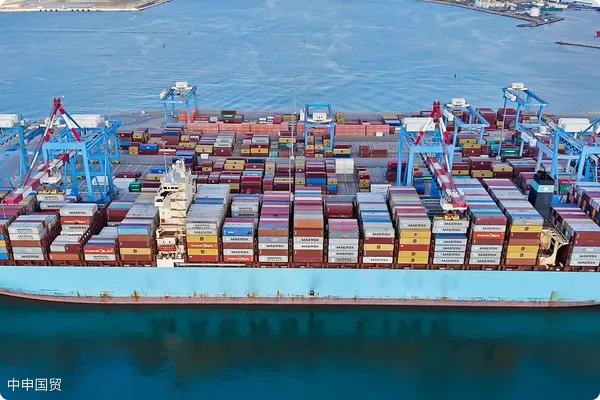- Shanghai Zhongshen International Trade Co., Ltd. - Two decades of trade agency expertise.
- Service Hotline: 139 1787 2118
With the rapid growth of Chinas dairy consumption, imported dairy products have gradually become a beneficial supplement to domestic dairy products. Dairy products are an excellent source of dietary protein and calcium, favored by consumers for their taste and nutrition. The following content will detail the types, source countries, import processes, and regulations of imported dairy products.
I. Types of Imported Dairy Products
Imported dairy products are mainly divided into three types: colostrum, raw milk, and dairy products.

Colostrum:Colostrum refers to the milk produced by dairy animals within 7 days after calving.
Raw Milk:Raw milk refers to the normal milk extracted from the udders of healthy dairy animals that meet Chinas relevant requirements, without any component changes. Colostrum, milk produced during antibiotic use and withdrawal periods, and spoiled milk must not be used as raw milk. Raw milk products refer to products processed from raw milk without any heat treatment sterilization process during processing.
Dairy Products:Dairy products refer to food products processed mainly from milk, such as pasteurized milk, sterilized milk, modified milk, fermented milk, cheese and processed cheese, cream, butter, anhydrous milkfat, condensed milk, milk powder, whey powder and whey protein powder, milk-based infant formula and its production base powder, casein, and other milk and dairy products (such as milk mineral salts and milk proteins, etc.).
II. Source Countries and Overseas Production Enterprises Inquiry
According to Chinese laws and regulations, the food safety management systems and food safety conditions of countries or regions exporting dairy products to China are assessed. The list of dairy products from countries or regions that meet the assessment and review requirements and have traditional trade, as well as the registration list of overseas production enterprises for imported dairy products, are published by the General Administration of Customs.
Website for querying the list of dairy products from countries or regions that meet the assessment and review requirements and have traditional trade: http://43.248.49.223/

Website for querying registration information of overseas food production enterprises: https://ciferquery.singlewindow.cn/

III. Inspection and Quarantine Procedures for Imported Dairy Products
Assessment of the exporting country (region) system — Registration of overseas dairy production enterprises — Health certificate issued by the competent government authority of the exporting country or region — Imported dairy productsimport and exportImporter registration — Entry animal and plant quarantine approval — Customs clearance — Subsequent supervision
IV. Registration of Dairy Importers
Dairy importers must register with the local customs before importing.
Online application:Importers should first fill out and submit the registration application form via the Internet + Customs platform, providing information such as the consignees name, address, and contact person, and are responsible for the authenticity of the information provided.
Submission of paper documents:After submitting the application in the registration management system, provide the following documents to the local customs:
(1) A completed and accurate consignee registration application form (Annex 2 of Announcement No. 55 of 2012 by the General Administration of Customs);
(2) Organizational structure, departmental functions, and job responsibilities related to food safety;
(3) Types of food to be traded and storage locations;
(4) If engaged in food import, processing, or sales within the past 2 years, provide relevant descriptions (types and quantities of food).
After verifying the registration documents and electronic information of the consignee, the customs will issue a registration number. The registration management system generates a list of registered consignees, which is published on the General Administration of Customs website.
V. Registration of Overseas Dairy Exporters
Overseas exporters or agents should apply for registration with the General Administration of Customs. Exporters or agents must ensure that they can contact relevant personnel through the registration information in case of emergencies. The General Administration of Customs registers exporters or agents who provide complete registration information. The registration management system generates a list of registered exporters or agents, which is published on the General Administration of Customs website.
VI. Inspection and Quarantine Requirements for Imported Dairy Products
The Administrative Regulations on the Registration of Overseas Manufacturers of Imported Food in the Peoples Republic of China (Customs Order No. 248) and the Administrative Measures on the Safety of Imported and Exported Food in the Peoples Republic of China (Customs Order No. 249) have officially come into effect on January 1, 2022. The Administrative Measures on the Inspection, Quarantine, and Supervision of Imported and Exported Dairy Products have been repealed simultaneously. In accordance with Customs Announcement No. 114 of 2021 (Announcement on Clarifying the Inspection and Quarantine Requirements for Imported Dairy Products), the inspection and quarantine requirements for imported dairy products are as follows:
(1) Imported dairy products must be accompanied by a sanitary certificate issued by the competent government authority of the exporting country or region. The certificate must bear the official seal of the competent government authority of the exporting country or region and the signature of its authorized representative, with the destination clearly marked as the Peoples Republic of China. The sample of the sanitary certificate must be confirmed by the General Administration of Customs.
(2) Imported raw milk, raw milk products, pasteurized milk, and modified milk processed using pasteurization technology require entry quarantine approval procedures.
(3) Overseas manufacturers should be familiar with and ensure that the dairy products they export to China comply with Chinas food safety national standards and relevant requirements.
(4) Testing institutions that issue test reports for imported dairy products can be official overseas laboratories, third-party testing institutions, or enterprise laboratories, as well as domestic testing institutions that have obtained food inspection agency qualification certification.
As consumer demand for dairy product quality and diversity grows, the position of imported dairy products in the Chinese market continues to rise. By gaining an in-depth understanding of and strictly adhering to relevant import procedures and regulatory requirements, dairy product importers can ensure product safety and win consumer trust and market share.
Related Recommendations
Category case
Contact Us
Email: service@sh-zhongshen.com
Related Recommendations
Contact via WeChat

? 2025. All Rights Reserved. Shanghai ICP No. 2023007705-2  PSB Record: Shanghai No.31011502009912
PSB Record: Shanghai No.31011502009912









